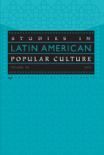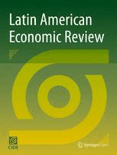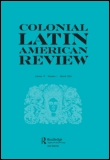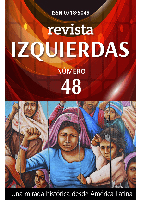
LATIN AMERICAN RESEARCH REVIEW
Scope & Guideline
Diving deep into the complexities of Latin American societies.
Introduction
Aims and Scopes
- Interdisciplinary Research:
The journal promotes interdisciplinary approaches, integrating perspectives from history, sociology, anthropology, political science, economics, and cultural studies to provide comprehensive insights into Latin American societies. - Focus on Historical Contexts:
Many papers delve into historical events, colonial legacies, and the socio-political evolution of Latin American countries, highlighting how these contexts shape contemporary issues. - Social Movements and Political Change:
There is a consistent focus on social movements, political activism, and the dynamics of power in Latin America, examining how these phenomena influence governance and societal transformations. - Cultural Studies and Representation:
The journal explores cultural expressions and representations, including literature, art, and media, to understand how they reflect and shape identities and social realities in the region. - Economic Analysis and Development:
It includes discussions on economic policies, development strategies, and the impacts of globalization on local economies, focusing on both historical and contemporary contexts. - Indigenous and Afro-Latinx Perspectives:
The journal emphasizes the importance of indigenous and Afro-Latinx voices, exploring themes of identity, representation, and the intersectionality of race, class, and gender.
Trending and Emerging
- Digital Activism and Social Media:
There is an increasing focus on how digital platforms and social media influence political mobilization, social movements, and public discourse, particularly among youth and marginalized groups. - Environmental Justice and Climate Change:
Emerging themes related to environmental justice, climate change impacts, and the role of indigenous communities in conservation efforts are gaining prominence, reflecting global concerns about sustainability. - Transnational Migration and Diaspora Studies:
Research examining the complexities of migration, diaspora identities, and the transnational experiences of Latin Americans is increasingly prevalent, highlighting the interconnectedness of global and local issues. - Intersectionality in Social Justice Movements:
Scholarly attention is shifting towards understanding the intersectionality of race, gender, and class within social justice movements, emphasizing the diverse experiences and struggles of various groups. - Decoloniality and Postcolonial Studies:
Papers exploring decolonial theories and practices, particularly in relation to indigenous rights and cultural sovereignty, are on the rise, challenging traditional narratives and power structures.
Declining or Waning
- Traditional Political History:
The focus on classical political history, particularly the narratives surrounding major revolutions or historical figures, seems to be waning as newer perspectives and methodologies gain traction. - Economic Growth Narratives:
Papers that primarily discuss economic growth in isolation, without considering the socio-political implications or the lived experiences of marginalized communities, are becoming less frequent. - Eurocentric Perspectives:
There is a noticeable decline in papers adopting Eurocentric frameworks for understanding Latin American issues, indicating a shift towards more localized and indigenous methodologies. - Simplistic Gender Analyses:
Contributions that treat gender as a binary or simplistic category are diminishing as more complex and intersectional approaches to gender studies gain prominence. - Focus on Single-Country Studies:
Research that only examines issues within a single country, without considering regional interconnections or comparative analyses, appears to be decreasing.
Similar Journals

Dixit
Exploring the Depths of Human ExperienceDixit is a respected academic journal published by Universidad Católica del Uruguay, Facultad de Ciencias Humanas, primarily focusing on the fields of humanities and social sciences. With an ISSN of 1688-3497 and an E-ISSN of 0797-3691, this journal has been a fully Open Access publication since 2007, enabling free and unrestricted access to its high-quality research. It serves as a vital platform for scholars, researchers, and students to explore innovative ideas and disseminate valuable findings that contribute to the understanding of human experiences across various contexts. The journal's commitment to open access not only promotes knowledge sharing but also facilitates cross-disciplinary dialogue, making it an essential resource for anyone seeking to deepen their insights into the humanities. By fostering collaboration and engaging the academic community, Dixit plays a pivotal role in advancing scholarly discourse in Latin America and beyond.

STUDIES IN LATIN AMERICAN POPULAR CULTURE
Exploring the Vibrant Tapestry of Latin American CultureSTUDIES IN LATIN AMERICAN POPULAR CULTURE is a premier journal published by University of Texas Press, dedicated to exploring the vibrant and diverse manifestations of popular culture across Latin America. With an ISSN of 0730-9139, this scholarly publication has been pivotal in advancing research within the field since its inception. Covering a broad spectrum of topics, from music and film to literature and social trends, the journal aims to foster a deeper understanding of cultural dynamics and their implications. Accessibility options are available through subscription for those seeking insights into this rich area of study, and the journal's contributions can be instrumental for researchers, professionals, and students alike. Recognized in the Q4 category of Arts and Humanities (miscellaneous) for 2023, STUDIES IN LATIN AMERICAN POPULAR CULTURE provides an essential platform for interdisciplinary discourse, making it an invaluable resource for anyone looking to engage with the nuances of Latin American culture.

Historia-Santiago
Engaging with Diverse Perspectives on Historical ContextsHistoria-Santiago is an esteemed academic journal published by the Pontificia Universidad Católica de Chile, Instituto de Historia. Since its inception in 2000, the journal has embraced an Open Access model, facilitating broad dissemination of historical research and ensuring that critical scholarly work is freely accessible to researchers, professionals, and students around the globe. With a focus on Latin American history, Historia-Santiago provides a platform for innovative research and contributions that engage with diverse historical narratives and methodologies. The journal aims to foster interdisciplinary dialogue and stimulate scholarly debate, thereby enriching the understanding of historical contexts and their implications in contemporary society. By maintaining high academic standards, Historia-Santiago occupies a vital role in the field of historical studies, encouraging authors to explore new ideas and perspectives that shape the understanding of our past.

Trashumante-Revista Americana de Historia Social
Unlocking the Secrets of Social Historical NarrativesTrashumante-Revista Americana de Historia Social is a pivotal scholarly journal published by UNIV ANTIOQUIA that has been advancing the field of social history since its transition to an open access format in 2013. Operating from Colombia, this journal has established a considerable reputation within the academic community, achieving a Q2 ranking in History and a Q4 ranking in Social Sciences (Miscellaneous) as of 2023. With an emphasis on interdisciplinary research, it aims to foster scholarly dialogue by covering diverse aspects of social history, including cultural, political, and economic dimensions across the Americas. Researchers, professionals, and students are encouraged to access its wealth of knowledge, as it is freely available to audiences worldwide, reflecting the journal's commitment to improving accessibility and fostering academic discourse. With Scopus rankings positioning it in the 43rd percentile for History and 15th percentile for General Social Sciences, Trashumante remains an essential resource for those dedicated to exploring and understanding the intricate tapestry of social historical narratives.

Latin American Economic Review
Unlocking Knowledge on Latin America's Economic LandscapeLatin American Economic Review, published by CENTRO INVESTIGACION & DOCENCIA ECONOMICAS-CIDE, is a pioneering open-access journal that has been contributing to the field of economics since its establishment in 2014. With a focus on the diverse economic landscapes of Latin America, it aims to foster a rich dialogue among researchers, policymakers, and practitioners about pressing economic issues and innovative solutions. The journal, which holds an ISSN of 2198-3526 and an E-ISSN of 2196-436X, provides an accessible platform for the dissemination of high-quality research, reflecting a commitment to advancing knowledge in the realms of economics, econometrics, and finance. Though currently positioned in the Q4 category in Economics within Scopus rankings, it continues to evolve, providing valuable insights and fostering collaboration across various disciplines. The journal's open access model enhances its reach, allowing unrestricted availability of content to researchers and practitioners worldwide. As the journal converges through its second decade (2014-2024), it remains dedicated to promoting critical analysis and discussion on economic challenges and policies that affect the region and beyond.

Colonial Latin American Review
Advancing Scholarship on Colonial InfluencesColonial Latin American Review is a premier journal published by Routledge Journals, Taylor & Francis Ltd, dedicated to the exploration and analysis of colonial Latin American history, culture, and politics. Established in 1992, the journal has been a cornerstone for scholars and students aiming to deepen their understanding of colonial societal influences and interactions throughout the region. With an impact factor that positions it within the Q2 category of Arts and Humanities and Q3 in Geography and Development for 2023, it demonstrates a commitment to rigorous scholarship that emphasizes interdisciplinary approaches. Although currently not open access, it offers a rich repository of peer-reviewed articles, book reviews, and critical essays that are essential for advancing research in this field. Based in the United Kingdom, Colonial Latin American Review serves as a vital platform for researchers, professionals, and students who seek to engage with the complexities of Latin America's colonial past and its enduring impacts on contemporary society.

Izquierdas
Unveiling New Perspectives in Social SciencesIzquierdas is a distinguished open access journal published by ARIADNA EDICIONES in partnership with Saint Petersburg State University, focusing on the dynamic fields of History, Political Science, and Sociology. Established in Chile and operating since 2008 as an open access platform, the journal fosters academic discourse and research dissemination for scholars and practitioners alike. With a commendable Q2 ranking in History and Q3 status in both Political Science and Sociology as of 2023, Izquierdas occupies a significant position within its categories, being recognized for its contributions to advancing understanding of leftist political thought and social dynamics. Its Scopus rankings further underscore its valuable contribution to the arts and humanities and social sciences, making it an essential resource for anyone engaged in contemporary social and political issues. The journal continues to evolve and adapt, set to converge from 2013 to 2024, ensuring it remains at the forefront of scholarly communication in its field. For researchers, professionals, and students passionate about these critical domains, Izquierdas represents a vital repository of innovative ideas and peer-reviewed research.

Cahiers des Ameriques Latines
Unveiling Insights into Latin America's Cultural and Urban LandscapesCahiers des Ameriques Latines is a distinguished academic journal published by the Institut des Hautes Etudes en Amérique Latine, based in Paris, France. Since its inception, this journal has been at the forefront of Cultural Studies, Urban Studies, Sociology, and Political Science, providing a critical platform for scholarly discourse on Latin American issues. With an open access policy implemented in 2008, it reaches a diverse and global readership, facilitating knowledge-sharing among researchers, professionals, and students alike. The journal has notably earned a recognition of Q2 in Cultural Studies and has been actively contributing to academic discussions since its converged years from 1972 onward, presently catering to themes relevant until 2024. Despite its varying rankings across categories, including placements in Demography and Urban Studies, Cahiers des Ameriques Latines remains essential for anyone looking to deepen their understanding of the complex social and cultural dynamics within Latin America.

Cuadernos Inter c a mbio sobre Centroamerica y el Caribe
Empowering Voices in Latin American StudiesCuadernos Intercambio sobre Centroamérica y el Caribe is a distinguished academic journal published by the Universidad de Costa Rica, specifically from the Centro de Investigación y Identidad y Cultura Latinoamericana. Since its inception in 2002, this journal has embraced an Open Access model, ensuring that vital research is accessible to a global audience, thereby promoting the exchange of ideas and knowledge. With a focus on the social, cultural, and political dynamics of Central America and the Caribbean, it serves as an essential platform for scholars, practitioners, and students interested in understanding the complexities of these regions. The journal invites contributions that explore contemporary issues, regional identity, and cultural narratives, making it a valuable resource for anyone engaged in Latin American studies. The journal’s ISSN is 1659-0139, and its E-ISSN is 1659-4940, reflecting its commitment to maintaining scholarly rigor and academic excellence.

Constelaciones-Revista de Teoria Critica
Exploring the Frontiers of Critical ThoughtConstelaciones-Revista de Teoria Critica is an esteemed journal dedicated to the exploration of critical theory, providing a platform for innovative scholarship in the humanities and social sciences. Published by SOC ESTUDIOS TEORIA CRITICA, this journal facilitates intellectual discourse by publishing cutting-edge research and theoretical analyses that engage with contemporary global challenges. With an ISSN of 2172-9506, it embraces an interdisciplinary approach, inviting contributions that span various fields, including philosophy, sociology, cultural studies, and political theory. Although it does not presently offer open access, it serves as a vital resource for scholars seeking to deepen their understanding of critical thought and its implications in today’s world. The journal's commitment to high scholarly standards ensures its relevance and effectiveness in fostering academic dialogue, making it an influential resource for researchers, professionals, and students alike.